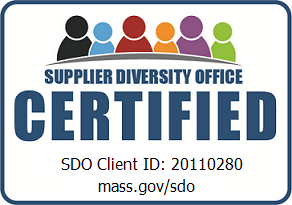“I wish I wasn’t talking to you,” and “I hope I never have to call you.”
As you might imagine, these are two familiar refrains we often hear when talking with leaders and organizations for the first time. The conversations can typically be separated into two buckets – they either have an immediate need for crisis communications support or may need assistance at some point in the future. The former is more of a fast-paced introduction, followed by a direct (though sometimes scattered) interaction, while the latter is often an exploratory “so and so referred me to you as someone we should know.”
And while these conversations are somewhat different, they are also the same in that the person calling doesn’t always know exactly what they need or what to ask – they just know they need help.
There is almost always one important question that isn’t necessarily verbalized throughout the conversation: how do I know which crisis communications firm is best for my organization and this specific situation?
As is the case with any professional service, sometimes you just know. That or you don’t have time to speak with others. But what about when your leadership team or Board has asked for or required multiple conversations/bids?
While no hard and fast rule or flowchart can lead you to the right answer, here are six qualities to look for in a crisis communications firm.

6 things to look for in a crisis communications firm
1. Experienced
Experience is more than a rehearsed talk track or fancy marketing materials. Does the firm you are talking with specialize in crisis communications? Or is it a PR firm that also does crisis? There is a big difference.
Make sure you are talking with someone who understands the importance of working with legal counsel, particularly in situations that are either the subject of or could become the subject of litigation. You’ll want to take appropriate and necessary steps to protect privilege to the extent possible in your correspondence, and this includes what you say and what you send.
Regardless of the issue, the firm you choose should always consider the short- and long-term impact of not only the situation but also your response. What you say and do now will set a precedent for what you say and do in the future.
While some firms work exclusively in one industry or another, no two crises are ever the same – and the response shouldn’t be, either.
2. Discerning
Unless you call out of the blue, the person you talk with should have done their research before the first conversation. At a minimum, they should know what your organization is and what it does. There will always be situations that are impossible to know about because they aren’t public knowledge, but many times a quick media or social media search of your company or others in the same space will reveal what the issue might be. A curious mind wants to know anything and everything, and it is fair to assume that if the person is prepared for the first call, they’ll be prepared for the next.
3. Knows how to listen first…and then asks questions (and more questions)
It probably goes without saying that a good communicator listens more than they talk. A good crisis communicator does the same…and then asks a litany of questions to better understand the issue and the action/planned action, followed by even more questions.
4. Calm
You’re calling a crisis communications firm to help take the temperature down a notch, not make matters worse. A crisis communicator who operates like an over-caffeinated bull in a china shop will make a crisis even more challenging than it already is. Instead, you want someone who keeps an even keel, thinks before they act, and helps remove haste and emotion from the decision-making process. They shouldn’t be laid back about serious matters, but they should exude calm confidence to help you structure and streamline the approach, facilitate action, and expedite response time.
5. Compassionate
Many situations call for more than just words. Missing employee. Job site injuries/accidents. Deaths. Layoffs. Inappropriate actions. The team you work with must recognize the moment and what that moment calls for, and that includes understanding that you and your colleagues are doing your best to manage through what is an unanticipated and chaotic time, both for you personally and for the company. One of the reasons you’re calling a crisis communications firm is for their objectivity, but they can’t be so detached from the gravity of the situation that clinical execution of the task at hand outweighs compassion – both for the person communicating and for the stakeholders who are receiving the message.
6. Trusted
You’re going to be working with this firm very closely – and very intently – during an intense and likely challenging period of time. You need to be comfortable with the team and their approach, and you have to trust them and their experience to guide you through high-pressure and high-stress situations. You also have to trust that they won’t be afraid to challenge your thinking (politely and professionally, of course), especially if you’re headed in a direction they believe will make matters worse.
Remember those “I wish I wasn’t talking to you” and “I hope I never have to call you” lines? Well, there’s a second part of that sentence that should come naturally if the crisis communications firm you’re talking with possesses the qualities described above: “But I’m glad I did.”
Are you searching for a crisis communications partner?
Philip T. Hauserman is Senior Vice President, Crisis Communications at The Castle Group. He can be reached at pthauserman@thecastlegrp.com.
















